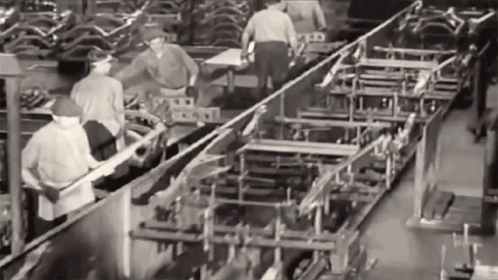
The New Machine
(1) Describe this aspect in the movie (what happens, with whom, why is it entrepreneurship/entrepreneurial).
This episode of the History Channel shows the story of three main characters who changed the history and economy of the US in the early 1900s. These three figures were magnates’ businessmen who used to direct and work in different types of industries, nevertheless, they had one thing in common. They built empires in those industries, to the point that they were on top of every sector they worked at, and there was no room for new entrepreneurs.
Carnegie, Rockefeller, and J.P Morgan transformed the US from a poor pitiful post-civil war society to a more prosperous economic environment with more job opportunities. This is the bright side of their story; however, the other side of the coin was different, as these monopolies from Carnegie, Rockefeller, and J.P. Morgan hoarded the main markets, leaving almost no room for entrepreneurship. Additionally, this episode also shows how the US government dismantled these monopolies and started showing and interest in adopting a new mindset to do business.
A new door opened for entrepreneurship when Henry Ford launched the model T. ALAM the American association for license automobile manufacturers refused to give permission to Henry Ford to move forward and sell his cars. Thus, the solution he found was to challenge the directors of ALAM to a race. When he won the race with his automobile, he became famous and started attracting attention from consumers, other businessmen, and even the government. Once he had all the attention, ALAM did not have other choice rather than grant permission to Ford to sell his cars in the market. Thanks to this race Ford was able to mass produce his car, the model T.
(2) Discuss why it is interesting.
This episode of The History Channel is interesting because it shows two sides of how an economy can be developed. At the beginning of the episode, it shows how Carnegie, Rockefeller, and J.P. Morgan, three iconic businessmen in the US, created their corporations in way of almost a kingdom, where they were the kings, and no other businessmen were able to break off that system they created.
On the other side, as they built humongous corporations, they were able to push the US economy forward, supporting the government and supporting employment. The other side of the economy that this episode shows, is related to Henry Ford. It shows how he is able to enter the automobile industry, disrupting the monopoly alike system that ALAM created and was hard to break just like the industries in which Carnegie, Rockefeller and J.P. Morgan were in, but it was the beginning of a new era.
(3) Elaborate on the interaction/relationship between entrepreneurship and society from the perspective of the movie.
As mentioned before, it is interesting to see how there are two different perspectives on how an economy can thrive. In this episode we can see how Carnegie, Rockefeller, and J.P. Morgan were able to develop the economy in a rapid pace. The US was a country that just went through a civil war, so there were many aspects that needed to be reconstructed, not only material wise but the economy also needed a big adjustment.
These three big magnates manage to build their big companies, providing employment for society and helping the economy to develop, however, this path got distorted and took a different direction to what it should have taken. These companies grew so much to the point that became monopolies. The US government didn’t like this and sent Rockefeller to court, but Rockefeller denied everything and said that he forgot all the facts. Of course, that trial accused Rockefeller of guilty and obligated him to dismantle Standard Oil Company, which interestingly, made Rockefeller richer.
On the other hand, Henry Ford’s story is also shared in this episode. He is shown as an entrepreneur that fought from the bottom to the top to build his empire as well. It is interesting to see the different perspectives of an historic figure. Because in this episode, Henry ford is shown as an entrepreneur hero, but in the Tucker: The Man and His Dream movie, he is shown as a businessman who took over the entire automobile market along with two more companies. Leaving no room for more competition just as Carnegie, Rockefeller, and J.P. Morgan did.